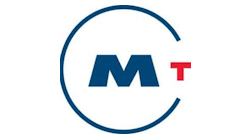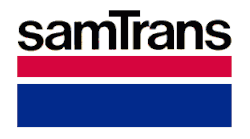Bay Area Clipper Card Turns 10
The Metropolitan Transportation Commission (MTC) recently marked the 10th anniversary of the Bay Area’s Clipper electronic transit fare payment card. Christened TransLink at the time of its November 2006 debut as a fare-payment option for all AC Transit and Golden Gate Transit and Ferry routes, the system was renamed Clipper in June 2010 to avoid confusion with TransLink systems in Canada and Australia, and to honor the Bay Area’s maritime history and the tremendous speed of the clipper ships that revolutionized travel from the East Coast to San Francisco Bay during the Gold Rush era.
The Clipper card today is accepted for fare payment by 20 public transit agencies across the Bay Area. Over the last year, riders used Clipper cards to pay fares for nearly half of all transit trips taken in the region – including an average of more than 800,000 fare payments each weekday. During this time, Clipper has been used to pay fares for more than 240 million transit trips, and has processed more than half a billion dollars of transit agency fare revenue.
“We are constantly receiving positive feedback from Clipper users,” said MTC Commissioner and Alameda County Supervisor Scott Haggerty, who chairs the Commission’s Operations Committee. “In general, BART provides 10 to 11 million rides each month, and over 60 percent of those fares are paid for with Clipper.”
Customers do seem pleased, with a 2015 survey of 2,127 Clipper customers indicating that 97 percent are satisfied with the payment card and 93 percent saying they would recommend it to others.
MTC and the region’s public transit operators have long recognized the value of a single fare payment method for the many transit services in the Bay Area. Indeed, Clipper can trace its conceptual origins to the 1990s, when state legislation gave MTC authority to identify transit agency functions that could be consolidated to improve efficiency, which lent support to a new effort for a regional transit fare payment card.
The result was a new fare payment card embedded with a “smart” chip that can be loaded and reloaded with cash value – accepted on all participating transit systems – as well as agency-specific passes. The Clipper system automatically calculates transfers both within a transit agency’s route network and from one agency to another, providing the maximum discount for which each transferring rider is eligible. Special Clipper cards for youth, seniors and people with disabilities give these riders access to eligibility-based discounts.
Following its 2006 launch on AC Transit and Golden Gate Transit and Ferry, the Clipper program steadily expanded to other major transit operators. Caltrain and Muni began accepting Clipper in 2008, BART in 2009, SamTrans and VTA in 2010 and San Francisco Bay Ferry in 2012. Twelve additional agencies have joined the Clipper network since 2014: Marin Transit, Fairfield-Suisun Transit, SolTrans, Vacaville City Coach, VINE, WestCAT, County Connection, Tri Delta Transit, Wheels, Petaluma Transit, Santa Rosa CityBus and Sonoma County Transit. Union City Transit will join in spring 2017, as will Sonoma-Marin Area Rail Transit (SMART) when it launches service in the spring.
To maintain the reliable service cardholders have come to expect and to lay the foundation for future innovations, like using Clipper to pay for transit-related services such as parking and bike-sharing, MTC and Bay Area transit agencies are now planning for the next generation of the Clipper system.






